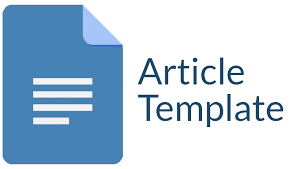IMPLEMENTASI PROGRAM PEMBELAJARAN DARING SELAMA PANDEMI COVID-19 DI KELAS XI MIPA 1 SMAN 1 DAGANGAN KABUPATEN MADIUN
DOI:
https://doi.org/10.26740/publika.v10n2.p571-584Keywords:
Implementation, Online Learning, Covid-19 PandemicAbstract
The Online Learning Program during the COVID-19 pandemic is an effort made by the Ministry of Education and Culture, SMAN 1 Dagangan as the executor of the program seeks to make online learning in schools run smoothly. This study explains and analyzes the implementation of the online learning program during the Covid-19 pandemic in the Class Xi Mipa 1 of Sman 1 Dagangan, Madiun. to see the implementation of the program has gone well. This article uses a qualitative method with a descriptive type. The focus of research on implementing implementation theory according to Abidin is the implementation of a policy related to two main factors, namely Internal Factors which include (a) policies to be implemented, and (b) supporting factors. External factors which include (a) environmental conditions, and (b) related parties. From these indicators, the researchers got the results of research, namely online learning can be applied with fairly fast adjustments, although online learning is difficult for students to understand, students also have enthusiasm to ask the teacher if the material is difficult to understand. However, judging from the student's response in understanding the material, it is quite good in class XI Mipa 1 although it can still be maximized by online learning via video conference. The important role of parents in online learning is to supervise and motivate students to be diligent in following and doing the assignments given during online learning at home.
Downloads
 Abstract views: 246
,
Abstract views: 246
, PDF Downloads: 178
PDF Downloads: 178





